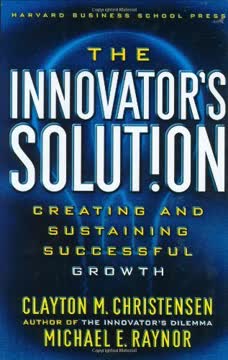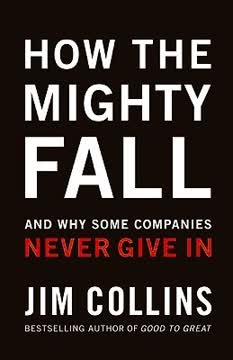Key Takeaways
1. Collective wisdom surpasses individual expertise
Under the right circumstances, groups are remarkably intelligent, and are often smarter than the smartest people in them.
Wisdom of crowds. This phenomenon occurs when a diverse group of individuals makes better decisions or predictions than any single expert. Francis Galton's ox-weighing experiment at a county fair demonstrated this principle, where the median guess of 787 participants was remarkably accurate.
Conditions for success. For collective wisdom to emerge, certain conditions must be met:
- Diversity of opinion
- Independence of thought
- Decentralization of knowledge
- Aggregation of judgments
Real-world applications. The wisdom of crowds manifests in various contexts:
- Google's PageRank algorithm
- Prediction markets like the Iowa Electronic Markets
- Sports betting markets
- Stock market pricing (to some extent)
2. Diversity enhances group decision-making
Even if most of the people within a group are not especially well-informed or rational, it can still reach a collectively wise decision.
Cognitive diversity. Groups with diverse perspectives and problem-solving approaches tend to outperform homogeneous groups, even if the latter consist of more capable individuals. This is because diversity:
- Introduces multiple viewpoints
- Reduces the risk of groupthink
- Enhances the collective knowledge pool
Examples of diversity's impact:
- The success of the SARS virus identification effort, which involved multiple labs worldwide
- The superiority of prediction markets over individual expert forecasts
- The importance of diverse stakeholders in corporate decision-making
Overcoming bias. Diversity helps counteract individual biases and errors in judgment, as different perspectives can cancel out or correct each other's mistakes.
3. Independence is crucial for wise crowds
The best way for a group to be smart is for each person in it to think and act as independently as possible.
Importance of independence. When individuals make decisions independently, their errors are more likely to cancel each other out, leading to a more accurate collective judgment. Independence helps prevent:
- Information cascades
- Groupthink
- Herd behavior
Challenges to independence:
- Social pressure
- Authority figures
- Shared information sources
- Emotional contagion
Maintaining independence. Strategies to promote independent thinking include:
- Anonymous voting or decision-making
- Encouraging dissenting opinions
- Limiting pre-decision discussions
- Diverse information sources
4. Decentralization fosters effective problem-solving
Decentralization's great strength is that it encourages independence and specialization on the one hand while still allowing people to coordinate their activities and solve difficult problems on the other.
Benefits of decentralization:
- Utilizes local knowledge
- Encourages innovation
- Increases adaptability
- Reduces single points of failure
Examples of successful decentralization:
- Linux open-source development model
- Wikipedia's collaborative content creation
- Prediction markets for forecasting
Balancing decentralization. While decentralization offers many advantages, it must be balanced with:
- Effective information aggregation mechanisms
- Clear overall goals or objectives
- Some level of coordination to prevent chaos
5. Coordination emerges from simple rules
Pedestrians are constantly anticipating each other's behavior. No one tells them where or when or how to walk. Instead, they all decide for themselves what they'll do based on their best guess of what everyone else will do.
Spontaneous order. Complex coordination can emerge from simple individual behaviors without central control. This phenomenon is observed in:
- Pedestrian traffic flow
- Stock market pricing
- Animal swarm behavior (e.g., bird flocks, fish schools)
Key components of coordination:
- Local interactions
- Simple rules followed by individuals
- Feedback mechanisms
- Adaptability
Challenges in coordination:
- Overcrowding or congestion
- Conflicting individual goals
- Information asymmetry
- External disruptions
6. Markets aggregate information efficiently
The point is that no matter how imperfect markets are, they remain astonishingly effective at aggregating information and allocating resources.
Market efficiency. Financial markets, despite their flaws, are generally good at incorporating diverse information into prices. This efficiency is demonstrated by:
- The difficulty of consistently beating the market
- The rapid incorporation of new information into prices
- The success of index funds over actively managed funds
Limitations of market efficiency:
- Bubbles and crashes
- Short-term irrationality
- Manipulation by powerful actors
- Information asymmetry
Improving market function. Strategies to enhance market efficiency include:
- Increasing transparency
- Reducing barriers to entry
- Encouraging diverse participation
- Implementing appropriate regulations
7. Cooperation relies on trust and reciprocity
We know that the crowds that make the best collective judgments are crowds where there's a wide range of opinions and diverse sources of information, where people's biases can cancel themselves out, rather than reinforcing each other.
Foundations of cooperation:
- Trust between individuals
- Reciprocity in interactions
- Shared norms and values
- Effective communication
Challenges to cooperation:
- Free-rider problem
- Tragedy of the commons
- Prisoner's dilemma
- Cultural or language barriers
Promoting cooperation. Strategies to encourage cooperative behavior include:
- Establishing clear rules and expectations
- Creating systems for fair punishment of non-cooperators
- Fostering long-term relationships
- Highlighting mutual benefits of cooperation
8. Democracy harnesses collective intelligence
Democracy helps people answer those questions because the democratic experience is an experience of not getting everything you want.
Strengths of democracy:
- Aggregates diverse opinions
- Provides checks and balances
- Allows for peaceful transfer of power
- Encourages compromise and negotiation
Challenges in democratic systems:
- Tyranny of the majority
- Influence of special interests
- Voter apathy or ignorance
- Short-term thinking
Improving democratic processes. Potential enhancements include:
- Increasing civic education
- Implementing ranked-choice voting
- Encouraging deliberative democracy practices
- Reducing the influence of money in politics
9. Bubbles and crashes reveal crowd limitations
Bubbles and crashes are textbook examples of collective decision making gone wrong.
Causes of market failures:
- Herd behavior
- Information cascades
- Overconfidence
- Speculation divorced from fundamentals
Historical examples:
- Dutch tulip mania (1637)
- South Sea Bubble (1720)
- Dot-com bubble (late 1990s)
- U.S. housing bubble (mid-2000s)
Mitigating market failures. Potential strategies include:
- Improving financial literacy
- Implementing circuit breakers in financial markets
- Encouraging contrarian thinking
- Regulating excessive speculation
10. Technology amplifies crowd wisdom
Google keeps the details of its technology to itself, but the core of the Google system is the PageRank algorithm, which was first defined by the company's founders, Sergey Brin and Lawrence Page, in a now-legendary 1998 paper called "The Anatomy of a Large-Scale Hypertextual Web Search Engine."
Technological enablers:
- Internet connectivity
- Big data analytics
- Machine learning algorithms
- Social media platforms
Examples of tech-enabled collective intelligence:
- Wikipedia's collaborative knowledge creation
- Crowdfunding platforms
- Open-source software development
- Citizen science projects
Challenges and considerations:
- Digital divide and unequal access
- Echo chambers and filter bubbles
- Privacy concerns
- Misinformation and manipulation
Last updated:
FAQ
What's The Wisdom of Crowds about?
- Collective Intelligence Concept: The book explores how groups can make better decisions than individuals, even experts, through a phenomenon called "the wisdom of crowds."
- Diversity and Independence: It emphasizes the importance of diversity and independence within groups, which are crucial for enhancing collective intelligence.
- Real-World Applications: The author provides examples from various fields, such as business and economics, to illustrate how collective wisdom can be applied effectively.
Why should I read The Wisdom of Crowds?
- Understanding Decision-Making: The book enhances your understanding of group decision-making processes and the factors influencing them.
- Practical Insights: It offers practical insights for organizations to harness collective intelligence, making it valuable for leaders and managers.
- Challenging Conventional Wisdom: It challenges the notion that only experts can make sound decisions, encouraging a reevaluation of problem-solving approaches.
What are the key takeaways of The Wisdom of Crowds?
- Groups Can Be Smarter: Under the right conditions, groups can outperform the smartest individuals within them.
- Conditions for Wisdom: Diversity of opinion, independence of members, and a mechanism for aggregating judgments are key conditions for collective wisdom.
- Caution Against Herding: The book warns against herding behavior, where individuals blindly follow the crowd, leading to poor decisions.
What is the "wisdom of crowds" as defined in The Wisdom of Crowds?
- Definition of Wisdom: It refers to the phenomenon where large groups can make accurate decisions or predictions, often better than individuals or experts.
- Conditions for Effectiveness: The group must be diverse, independent, and have a method for aggregating opinions, like voting or market mechanisms.
- Examples in Action: Examples include predicting election outcomes and estimating the weight of an ox, demonstrating collective intelligence in practice.
How does diversity contribute to the wisdom of crowds in The Wisdom of Crowds?
- Variety of Perspectives: Diversity brings different viewpoints and experiences, enhancing problem-solving capabilities and decision robustness.
- Reduction of Groupthink: A diverse group is less likely to fall into groupthink, allowing for more thorough analysis of options.
- Increased Creativity: Diverse teams are often more creative, drawing from a wider range of ideas and solutions.
What role does independence play in collective decision-making according to The Wisdom of Crowds?
- Avoiding Correlated Errors: Independence ensures that individual errors do not align, maintaining the group's decision accuracy.
- Encouraging Unique Contributions: Independent thinking brings unique insights and information, enriching the group's collective knowledge.
- Preventing Herd Behavior: Independence helps prevent herding, where individuals follow the majority without critical evaluation.
How does The Wisdom of Crowds illustrate the concept of coordination problems?
- Definition of Coordination Problems: These arise when individuals must align actions based on others' anticipated actions, like deciding when to go to a bar to avoid crowds.
- Examples of Coordination: The book uses traffic flow and social gatherings to show successful coordination without centralized control.
- Importance of Shared Expectations: Successful coordination relies on shared expectations and norms, aiding decision alignment with group goals.
What are information cascades, and how do they affect decision-making in The Wisdom of Crowds?
- Definition of Information Cascades: These occur when decisions are based on others' actions rather than personal information, often leading to suboptimal outcomes.
- Example of Plank Roads: The rise and fall of plank roads in the U.S. illustrate how initial successes can lead to widespread adoption of flawed ideas.
- Risks of Imitation: While imitation can be beneficial, it can lead to poor decisions if individuals stop relying on their own knowledge.
How does The Wisdom of Crowds address the effectiveness of markets in aggregating information?
- Markets as Aggregators: Markets effectively aggregate diverse opinions and information, leading to accurate predictions and efficient outcomes.
- Vernon Smith's Experiments: Experiments showed that even imperfect participants could reach optimal market outcomes through trading.
- Real-World Applications: Market aggregation principles apply to contexts like stock and betting markets, showing their effectiveness in harnessing collective intelligence.
What are the implications of the wisdom of crowds for organizations and businesses according to The Wisdom of Crowds?
- Harnessing Collective Intelligence: Organizations can improve decision-making by leveraging the wisdom of crowds, encouraging diverse and independent thinking.
- Creating Effective Structures: Establish mechanisms for aggregating insights, like brainstorming sessions or decision markets, to enhance outcomes.
- Rethinking Leadership: Leaders should focus on facilitating environments where collective wisdom can thrive, rather than being sole decision-makers.
How does The Wisdom of Crowds relate to market efficiency?
- Market Efficiency Explained: The book discusses how stock prices reflect all available information, though markets can be susceptible to irrational behavior.
- Role of Short Sellers: Short sellers help maintain market efficiency by balancing the market, reducing the chance of price inaccuracies.
- Collective Judgment: The market's collective judgment can be accurate but is influenced by individual investor behavior.
How can I apply the concepts from The Wisdom of Crowds in my daily life?
- Embrace Diverse Perspectives: Seek out diverse opinions and experiences in decision-making, as diversity leads to better outcomes.
- Encourage Independent Thinking: Foster environments where independent thoughts and ideas are freely expressed, enhancing decision quality.
- Utilize Collective Resources: Engage in discussions and seek input from others for complex decisions, as collective intelligence can improve outcomes.
Review Summary
The Wisdom of Crowds receives mixed reviews, with praise for its thought-provoking ideas on collective intelligence and criticism for its repetitive examples and dry writing style. Readers appreciate Surowiecki's arguments on how diverse groups can make better decisions than individual experts under certain conditions. However, some find the book's structure and presentation lacking. Many reviewers note that while the central thesis is interesting, the execution and supporting evidence could be stronger. Overall, the book is seen as a valuable contribution to discussions on group decision-making and market dynamics.
Similar Books








Download PDF
Download EPUB
.epub digital book format is ideal for reading ebooks on phones, tablets, and e-readers.




